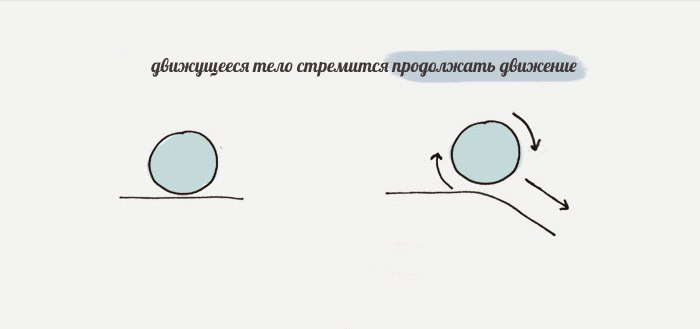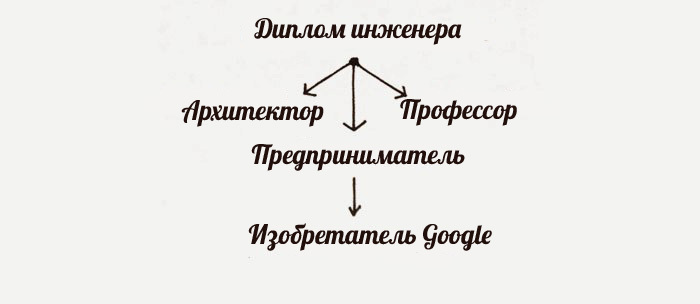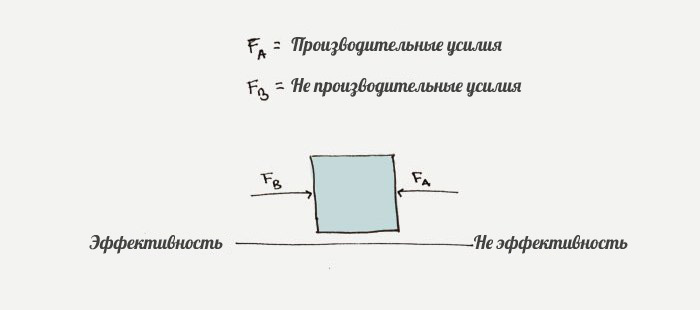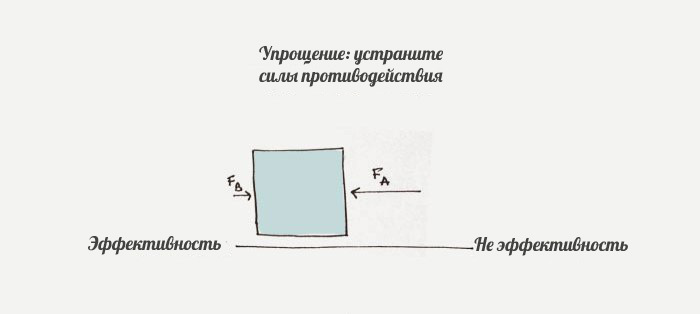Productivity Physics: Applying Newton's Laws in Work

In this article, James Clear (James Clear), tells how to use the laws of Newton to increase productivity in everyday life.
In 1687, Isaac Newton published his revolutionary book, The Mathematical Principles of Natural Philosophy, in which he outlined the three laws of dynamics. Thus, Newton laid the foundations of classical mechanics and changed the views of mankind on physics and science in general.
')
But most people do not realize that the three laws of the dynamics of Newton can be used by analogy to increase productivity , simplify the work process and improve their lives.
Let me call this analogy Newton's productivity laws.
Newton's first law of productivity
The first law of dynamics: The body remains at rest or continues to move at a constant speed if external force does not act on it (ie, the moving body tends to continue moving, and the rest at rest - to remain at rest).
Inertness is the fundamental law of the universe. Newton's first law applies to productivity. The body at rest tends to remain at rest.
Good news? The law works differently. A moving body tends to keep moving. In terms of productivity, this means only one thing: The most important thing is to find a way to start. Starting, to continue to move much easier.

So, what is the best way to start when you are in the grip of inertia?
From my own experience, I can say that a proven method to start work is the rule of two minutes.
Here’s how the two-minute rule sounds applied to productivity: To overcome inertia, find a way to begin the task in less than two minutes.
Please note that we are not talking about the completion of work. In fact, you do not even need to work directly. But thanks to the first law of Newton, you will often notice that, having begun this small part of the task within two minutes, it will be much easier to continue working.
I will give a few examples ...
- Perhaps right now you do not want to go for a run. But if you wear shoes and fill a bottle with water, this small starting action will be enough to make you leave the house.
- Perhaps right now you are looking at a blank screen and you can’t force yourself to start writing a report. But if within two minutes you write some random sentences, it may turn out that the necessary phrases will begin to be born under your fingers.
- Perhaps right now you need to complete a creative task, and you cannot bring yourself to draw anything. But if you draw a random line on a piece of paper, and then turn it into a dog, you can feel how the tide of creative forces begins.
Motivation often comes after the start. Find a way to start small. A moving body tends to keep moving.
Newton's second law of productivity
The second law of dynamics: F = ma. The vector sum of the forces acting on the body is equal to the product of the mass of this body and the acceleration vector of this body (ie, the force is equal to the product of mass and acceleration).
Let's look at the components of this equation and how it can be applied to productivity.
In this equation, we must pay attention to one important point. The force F is a vector quantity. A vector is characterized by the size (how much work you are doing) and the direction (where this work is directed). In other words, if you want to give the body acceleration in a certain direction, then it matters, both the magnitude of the force applied and the direction of that force.
You know what? In life, everything happens the same way.
If you want to be productive, it depends not only on how hard you work (value), but also on where you put your efforts (direction). This is true both for large, significant affairs of our life, and for small daily tasks.
For example, the same abilities can be applied in different directions and get completely different results.

Simply put, you only have a certain amount of strength that you can invest in your work, and the direction of application of forces is just as important as how hard you work.
Newton's third law of productivity
The third law of dynamics: If one body acts on the second, then the second body also acts on the first with a force equal in magnitude but opposite in direction (ie, the forces are equal and opposite in direction).
Each of us has an average speed with which we work in everyday life. Our usual level of productivity and efficiency is usually the balance of productive and non-productive forces, according to Newton's formula, equal in magnitude and opposite in direction.
In our life there are productive efforts - concentration, positive and motivation. There are also unproductive efforts - stress, lack of sleep and attempts to do too many things at once.

If we want to become more efficient and productive, we have two options.
First: add productive effort. This is the option of "pushing through." We overpower ourselves, drink an extra cup of coffee and work even harder. That's why people take drugs that help them concentrate , or watch motivating videos to “pump up” themselves. All this - attempts to increase their productive forces and overcome unproductive.

Obviously, this can be done only as long as you do not burn out to the end, but for a short period of time, a “pushing” strategy can give a good result.
The second option: eliminate the forces of opposition. Simplify your life, learn to say "no", change the situation, reduce the number of responsibilities taken or in any other way eliminate the forces that hold you back.

If you reduce the unproductive forces in your life, your productivity naturally increases. It's as if you miraculously got rid of the hand that pulls you back. (As I like to say: if you eliminated all the factors that are preventing you from becoming productive, you would not need tips on increasing productivity.)
Most people try to "push through" and force their way through obstacles. The disadvantage of this strategy is that you still have to deal with other forces. I believe that much less stress implies an option in which we eliminate the counteracting forces and enable our productivity to grow naturally.
Newton's productivity laws
The laws of Newton's dynamics, to a large extent, shed light on how to be productive.
- A moving body tends to keep moving. Find a way to get down to business within no more than two minutes.
- The question is not only to work hard, but also to work on the right things. Your strengths are limited, the direction of their application is also important.
- Productivity is the balance of opposing forces. If you want to be more productive, you can either “push through” the obstacles or eliminate the resistance forces. The second option is less stressful.
PS We recommend another article on the topic - 14 tips on how to make 2015 the most productive year.
Translated by Vyacheslav Davidenko, founder of MBA Consult
Source: https://habr.com/ru/post/287006/
All Articles